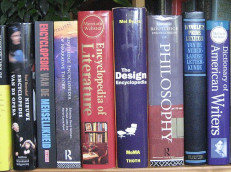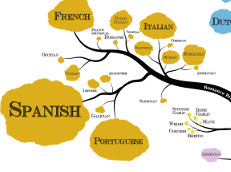Over the course, we have read many texts that have overarching themes of war, violence, and memories. We have even reflected on our own and focused on discussions of motherhood, growing up, betrayal, and context differences. My favourite conversation this far was when we talked about Amulet and connected mothers from the other texts like the Shrouded Woman or Time of the Doves. Some of the books I hadn’t read but diving deep into motherhood, the different types of mothers, and values they held, and what it truly means to be a mother was very eye-opening. For example, one book that I didn’t read had a mother who wanted to kill her children for their benefit, which seems very wrong in our definitions of motherhood. I loved all the books we read over this term, and connecting them was a great way to understand further what romance studies is and how you can connect themes and language styles to send a message.
Childhood was a big theme in many of the texts and growing up to adapting to be an adult, especially in Proust, W or Memory of Childhood, and Agostino. Many new experiences changed them to be more mature and develop their identity. Even though each story was set in a different time and place, the process is still somewhat the same. There are things to learn, achieve respect and maturity, and go through cultural events to shape you to become an adult. However, these stories are not neat; they are messy and come with betrayal, confusion, lost memories from trauma, and childhood experiences that hinder one from maturing. Children’s voices show us a new perspective that adults lack. The innocent curiosity and gratefulness to the world are essential childlike values that adults stray away from. Children are dreamers, and constantly focussing on reality takes us away from life, and we don’t take time to enjoy the little things children notice because they are seeing things and experiencing things for the first time. Children will ask questions, adults are too scared to, and they miss the true truths of life.
Unlike childhood, some texts focus on the present time being more important than memories, like the Society of Reluctant Dreamers, Bonjour Tristesse and the Shrouded Woman. In these texts, children take power and betray their parents/guardians. It doesn’t focus on the childhood memories but on the child’s ambitions, which most of the time end up hurting people because they are immature. It challenges the theme of ordinary parents always being in power over their children. In Bonjour Tristesse, Cecile plans to betray Anne, her guardian and does not care about any wisdom Anne has given her; instead lets her ambitions get the best of her and end in a sad betrayal.
All these texts challenge our world traditions and challenge language by revealing things that are not natural. They use words that uncover themes that the real world does not fully understand. Romance studies is not a representation of the real world. It represents the uncovered, unconscious, not natural world, as these texts travel around and are read in different contexts. Romance studies opens up this world and challenges the perspective of the real world. Romance studies is not separate; it fits into the world’s history and movements.
I loved the quote from the concluding lecture, “A minor literature doesn’t come from a minor language; it is rather that which a minority constructs within a major language” (Deleuze & Guattari)
Romance studies may be a minor language, not seen by the naked eye. Still, it is that minority that emerges itself into a majority language (ex. French) that all can understand so that Romance studies is shared throughout the world. Romance studies is ever-changing and growing, fighting its way to stay in the world, especially as a minor language, because everything today is read in English. Romance studies is connected and unconnected to this world; it is full of memories, dreams, hidden feelings, thoughts, revolutions, and betrayal. Most of all, Romance studies is hidden in everything.





